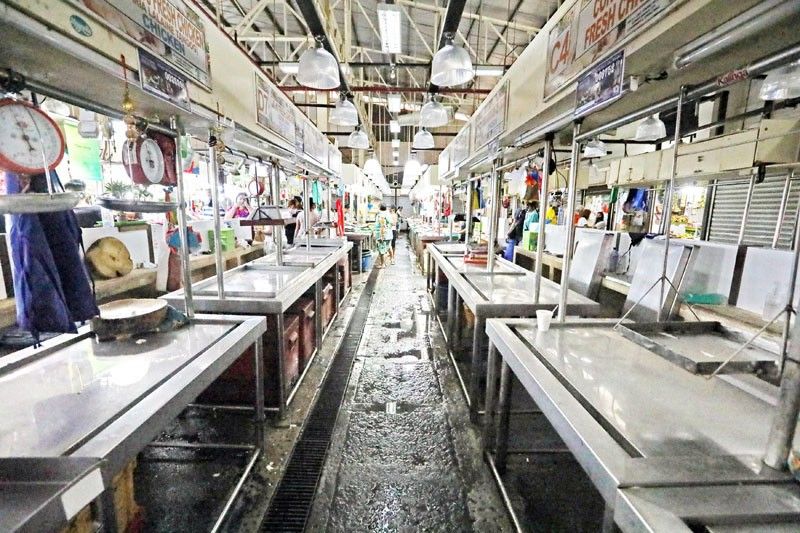Price caps on pork not working — UPLB economists

MANILA, Philippines — The enforcement of a 60-day price ceiling on pork in Metro Manila to rein in quickening inflation is not working, economists at the University of the Philippines - Los Baños said, adding a warning that the move is probably doing more harm than good.
In a position paper released Wednesday, the UPLB's Department of Agricultural and Applied Economics said that while the price caps have good intentions, hog producers' hesitation to sell pork meat at a price that consumers can finally afford is only worsening the already tight supply in the market.
Under President Rodrigo Duterte’s Executive Order 124, retail price of pork shoulder is capped at P270 per kilo, pork belly at P300 per kilo and dressed chicken at P160 per kilo for 60 days in the capital. The measure — which was recommended by the Department of Agriculture — is meant to arrest staggering meat prices that pushed up inflation to a 2-year high of 4.5% in January.
But UPLB economists said the price controls have "unintended consequences" that made DA's job of providing support to hog raisers while keeping prices low for consumers difficult. The best solution, they said, is to "let markets take its course for now" while focusing on "other interventions".
"It is clear with the recent experience that price caps will not work. This should therefore be discontinued and let the market forces work," UPLB economists said. "Higher prices in Manila are a consequence of limited supply. Producers will take advantage of such opportunity," they added.
Price controls are part of the agriculture department’s multi-pronged approach to arrest spiraling pork prices emanating from tight supply due to the African swine fever, which remains uncontrolled since a local outbreak began in 2019.
Currently, the DA is asking Duterte to expand the volume of imported pork to 404,000 metric tons from the current 54,000 MT to plug the massive supply hole. If increasing the import volume won't stabilize pork supply, UPLB said that's the only time for the government to consider reducing tariffs to shielf local producers from the influx of cheap pork from abroad.
Apart from these, the DA also entered into negotiated buying-contracts with local suppliers in ASF-free areas, something that UPLB economists said must be reviewed or replaced since it may lead to a situation where the government had to purchase pork at a high price and sell them low. "Such intervention is prone to opportunism," they added.
Lastly, the DA also said the government would subsidize transport costs from farm to market, especially those coming from ASF-free areas to replenish supply in the capital. While this is a "good option", UPLB economists said the government must be "selective and strategic" in handing out subsidies.
"Subsidies are difficult to remove once implemented. For now, it will be better to improve quarantine protocols and let intra-island trade to flow as necessary based on market-determined prices in Manila and nearby areas," they said.
- Latest
- Trending




























